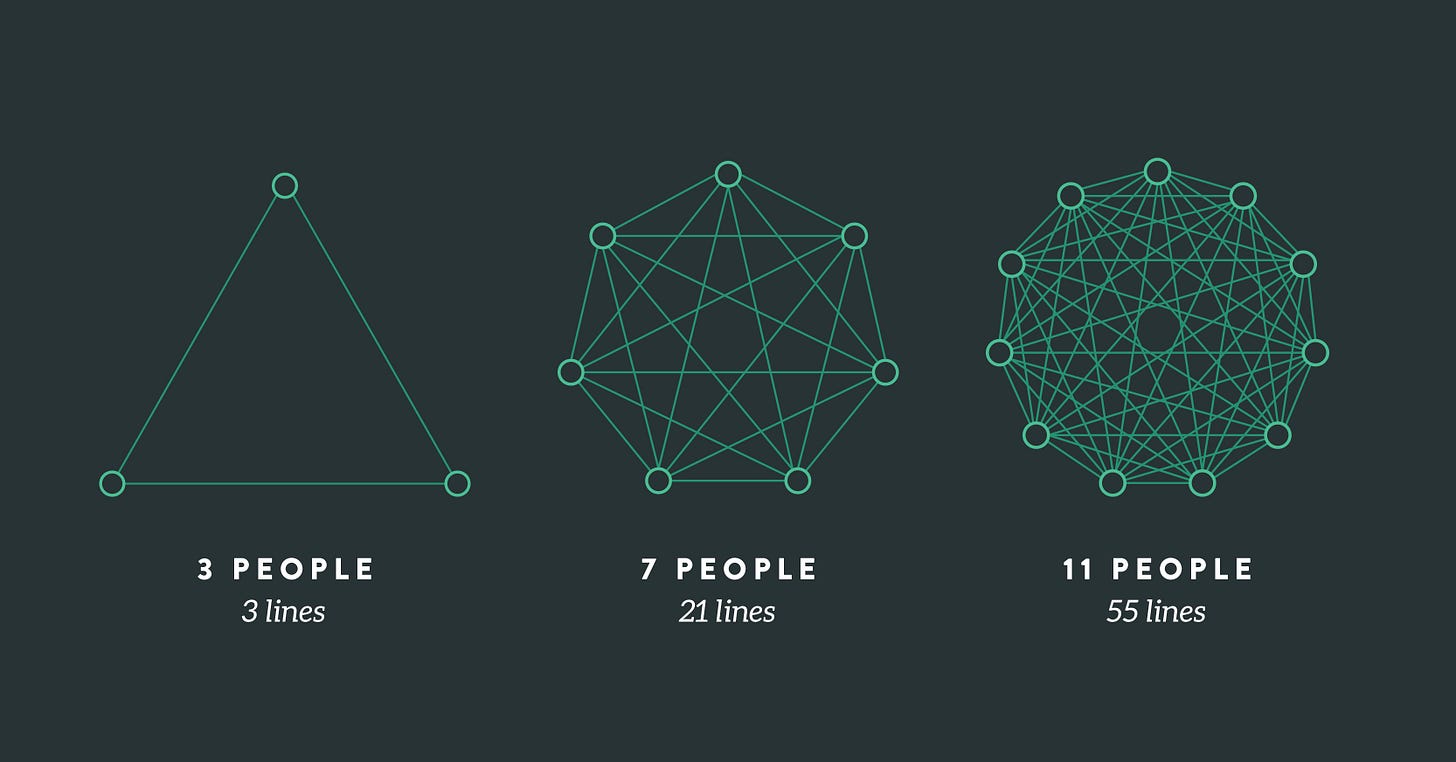Play-first Software
Still waiting for Dynamicland
I think, all things considered, I'm pretty good at learning. I have a voracious appetite for information and understanding how the world works and I'm determined to know at least a little bit about everything. The more I learn the more I am convinced that learning happens by playing.

When we play we test our limits at our own pace, keeping the challenge at exactly the right level to maintain flow. Asking "what if?" and checking the answer is the natural feedback loop of exploration. In contract, most efforts to teach people put them on a track through a curriculum that has been intentionally designed to guide them. The problem, as I see it, is that this simply doesn't work very well.
For one thing, it's boring. But it's boring because it's based on the assumption that all students are identical. I've been mad about this forever: my thesis project during university (2015) was a MOOC that dynamically generated an online course from a set of modules based on a student's interests and aptitude. Each module's content could be parameterised based on their familiarity with other topics and their performance on interactive problem solving exercises.
This was pretty cool, but I think it still made a basic mistake. The platform took direct control away from the user. Educational systems seem prone to the assumption that students don't know anything, when in fact the opposite is true. Typically students all know a different set of something(s) when they undertake a course but, due to the one-way broadcast nature of most educational material this nuance is totally lost.
This is one reason why the Socratic method works so well for teaching. Students take on a dual role as educators by engaging in conversation with one another. They can trade their knowledge and perspective with one another through dialog and massively increase the bandwidth of learning as a result. Brooks’ Law might be a good thing, sometimes.

This isn't a new observation. We've clearly known about the Socratic method since, uh, Socrates. Similarly Bret Victor's ideas are well-known amongst the design crowd and, in my experience, everyone thinks Dynamicland soundshs like the "best thing ever". I was chatting to Charles recently and he asked me why, despite the promise of Dynamicland, it still hasn't changed everything.
The answer is obviously multi-faceted. For starters it's an insanely hard design and engineering problem. I'm convinced that the main reason for our linearised one-size-fits-all approach to education stems from the fact it's fairly easy to build. No matter how tantalising it sounds, we can't spontaneously leap across the innovation-chasm straight to the ultimate learning experience. If we ever hope to make it to Dynamicland we need to arrive there by exploring the adjacent possible and taking the small, viable steps towards it over time.
Perhaps we could start small: giving users control over their learning experience. I believe freeform play is a strict prerequisite for quality education. Our schools, universities, public forums (social media) and even our computer operating systems themselves impose a top-down structure on our experience. In an effort to tame the complexity of wicked problems we pretend they are simple and are surprised when our expectations clash with reality. There may be no straightforward solution to the problem of education but does that mean we should settle for the status quo? As designers sometimes it’s best to get out of the way and create a space to let users find their own personal solution. Humanity can act as one large distributed computer, using play to find the path(s) of least resistance for every unique situation.
Over the last ~18 years of making applications & video games I've found this philosophy applies equally to both. The games I enjoy most as a player and a designer are those that let me decide how to play. The apps I enjoy let me find the most natural workflow for my needs. There is no correct way to play. My current project, WizardChess, embodies this philosophy deeply. Once you learn the basic gameplay systems it's up to you to play in a way that's fun for you. I hope that my future games can push even further in this direction.
There are many promising ideas percolating in software right now: privacy-first, AI-first, collaboration-first etc. but I think that every system and interface we interact with should be play-first.
Until next time,
✌️ Ben
Stuff I’ve been thinking about
Personal Branding Ruins People’s Lives
Soviet Russia’s Catastrophic Speedrun to Capitalism
Birdwatch / Community Notes (the original title is too clickbait-y for me)

